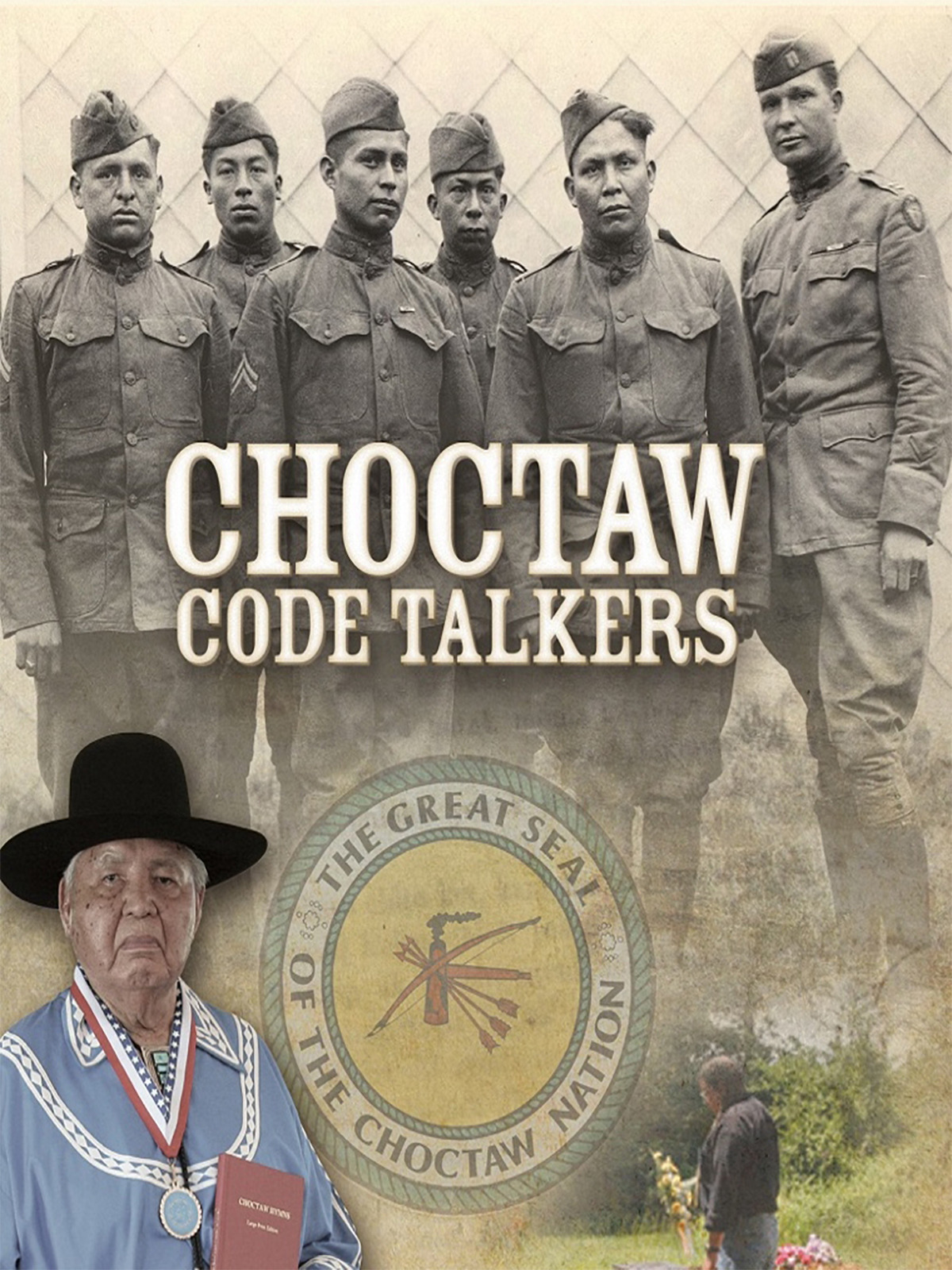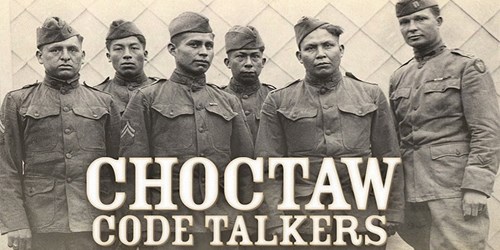
Whispers of Victory: The Unsung Saga of the Choctaw Code Talkers of WWI
In the annals of military history, certain innovations stand out for their sheer ingenuity and decisive impact. Among the most remarkable, yet for decades largely obscured, is the story of the Choctaw Code Talkers of World War I. Long before the celebrated Navajo Code Talkers of World War II became household names, a small band of Native American soldiers from Oklahoma, speaking their ancestral Choctaw tongue, created an unbreakable code that turned the tide in critical moments on the Western Front. Their extraordinary service, a testament to linguistic heritage as a weapon, remains one of the most compelling and quietly heroic chapters of American military history.
The year is 1918. The Great War, a grinding, brutal stalemate, has entered its final, bloody phase. On the Western Front, the cacophony of artillery fire and machine guns is incessant, but a different kind of battle rages behind the lines: the struggle for secure communication. American forces, under the command of General John J. Pershing, faced an intractable problem. German intelligence was remarkably adept at intercepting and deciphering Allied telephone and radio messages. Every order, every strategic movement, risked exposure, leading to ambushes, artillery barrages, and devastating losses. Attempts at using English, French, and even German dialects proved futile, as enemy linguists cracked every code with alarming speed. Morale was low, and a breakthrough in secure communication was desperately needed.

Enter Captain Lawrence, an American officer in the 142nd Infantry Regiment, 36th Division. His regiment, part of the Oklahoma National Guard, included a significant number of Choctaw men, who, like many other Native Americans, had eagerly volunteered for service despite often facing systemic discrimination at home. These men, many of whom spoke English as a second language, communicated among themselves in their native Choctaw. It was an accidental discovery, a stroke of wartime serendipity, that would change the course of several pivotal battles.
One day, Captain Lawrence overheard Solomon Louis and other Choctaw soldiers conversing in their language. A sudden realization struck him: the Germans, for all their linguistic prowess, would almost certainly not understand Choctaw. The language, with its complex syntax, unique phonetics, and lack of any written form familiar to European scholars, was an enigma. The idea was simple, audacious, and potentially revolutionary: use the Choctaw language as a code.
The concept was immediately put to the test. Eight Choctaw soldiers were pulled from their combat duties and assigned a new, top-secret mission. These men were not trained cryptographers; they were ordinary soldiers, now tasked with an extraordinary duty. They included Private First Class Joseph Oklahombi, a decorated war hero who would later earn the Distinguished Service Cross; Private First Class Ben Carterby; Private Calvin Wilson; Private George Hunter; Private Jefferson Nelson; Private Robert Taylor; Private Tobias W. Frazier; and Private Solomon Louis. Later, others joined their ranks, bringing the total to at least 19 Choctaw men who served as code talkers.
The "code" itself was not a pre-designed cipher system. It was the living, breathing Choctaw language, adapted on the fly. Many military terms did not exist in Choctaw, so the soldiers improvised. "Machine gun" became "little gun shoot fast" (or nushi in Choctaw, meaning "little bird," combined with other terms). "Artillery" became "big gun" (tashka meaning "warrior" or "soldier" combined with chukka meaning "house" for the artillery piece, or simply "big gun"). "Battalion" became "a band of warriors." "To charge" became "to run." These simple, yet ingenious, improvisations created a linguistic shield that was impenetrable to the enemy.
The impact was immediate and profound. Their first mission came during the Meuse-Argonne Offensive, a massive Allied push that began in September 1918 and aimed to break the German lines. On October 26, 1918, the 36th Division was preparing for an attack near St. Etienne-au-Temple. Critical orders for troop movements, supply lines, and artillery barrages needed to be communicated swiftly and securely. The Choctaw Code Talkers were put to work.
"We were told that the Germans were getting all of our messages and to go in and talk in our language," recalled Private First Class Ben Carterby years later. "So we started talking, and the Germans were baffled. They couldn’t understand a word."
Within 72 hours of the Choctaw language being deployed, American forces had advanced 20 kilometers, capturing strategic positions and significantly weakening German resistance. The speed and security of communication allowed commanders to react in real-time to battlefield developments, bypassing the delays and vulnerabilities that had plagued them for months. Messages that would have taken hours to encode, transmit, and decode using conventional methods, and still risked interception, were now sent and received in minutes, understood only by the Choctaw speakers on either end.
"The enemy was never able to break our code," Captain Lawrence proudly reported. "The use of the Choctaw language in transmitting messages was very satisfactory." Another report stated, "The Choctaw Indian messages were never deciphered by the enemy and contributed to the success of the Meuse-Argonne offensive."

Their success was not limited to St. Etienne. Throughout the final weeks of the war, the Choctaw Code Talkers continued to serve, transmitting over 400 messages, all of which remained unbroken. Their contributions were vital in maintaining the momentum of the Allied offensive, directly contributing to the eventual armistice on November 11, 1918.
Yet, despite their crucial role, the Choctaw Code Talkers returned home not as celebrated heroes, but largely in obscurity. Their service, considered highly classified, meant they could not speak of their wartime activities. Furthermore, the prevailing societal attitudes of the time meant that the unique contributions of Native American soldiers were often overlooked or downplayed. Unlike their Navajo counterparts of WWII, whose story gained significant recognition in the latter half of the 20th century, the Choctaw Code Talkers faded into the shadows of history. They resumed their lives, many returning to farming or manual labor, their extraordinary linguistic heroism remaining a secret known only to a select few.
Decades passed. The Great War became a distant memory, its heroes increasingly fewer. The Choctaw Code Talkers, pioneers in a field that would prove invaluable in future conflicts, remained largely unacknowledged. It wasn’t until the late 20th century, spurred by a growing interest in Native American military contributions and the declassification of wartime records, that their story began to re-emerge.
In 1989, the Choctaw Nation of Oklahoma finally recognized their brave men with the Choctaw Nation Code Talkers’ Medal. This was a crucial step, but broader national recognition remained elusive. It took until 2008 for the Code Talkers Recognition Act to be passed by the U.S. Congress, acknowledging the contributions of all Native American code talkers across various tribes in both World Wars. Finally, on November 20, 2013, over 95 years after their wartime service, the Choctaw Code Talkers were posthumously awarded the Congressional Gold Medal, the highest civilian award bestowed by the United States Congress. Representatives from the Choctaw Nation accepted the medals on behalf of their ancestors, a poignant moment of long-overdue justice.
The legacy of the Choctaw Code Talkers extends far beyond their immediate impact on the battlefields of WWI. They were the original linguistic warriors, demonstrating the immense strategic value of indigenous languages. Their pioneering work laid the groundwork for the more extensive and widely recognized Code Talker programs of World War II, proving the concept’s efficacy under intense combat conditions. Their story serves as a powerful reminder of the hidden depths of American strength, found not just in military might, but in the diverse cultural heritage of its people.
Today, as we reflect on the sacrifices made in the Great War, it is essential to remember the whispers of victory that echoed across the Western Front, carried on the ancient, resilient tongue of the Choctaw people. Their courage, ingenuity, and quiet dedication ensured that vital messages reached their destinations, turning the tide of battle and ultimately helping to secure Allied triumph. The Choctaw Code Talkers, once unsung heroes, now stand proudly in their rightful place among the legends of American military history, their voices a testament to the enduring power of language and the indomitable spirit of those who serve.


